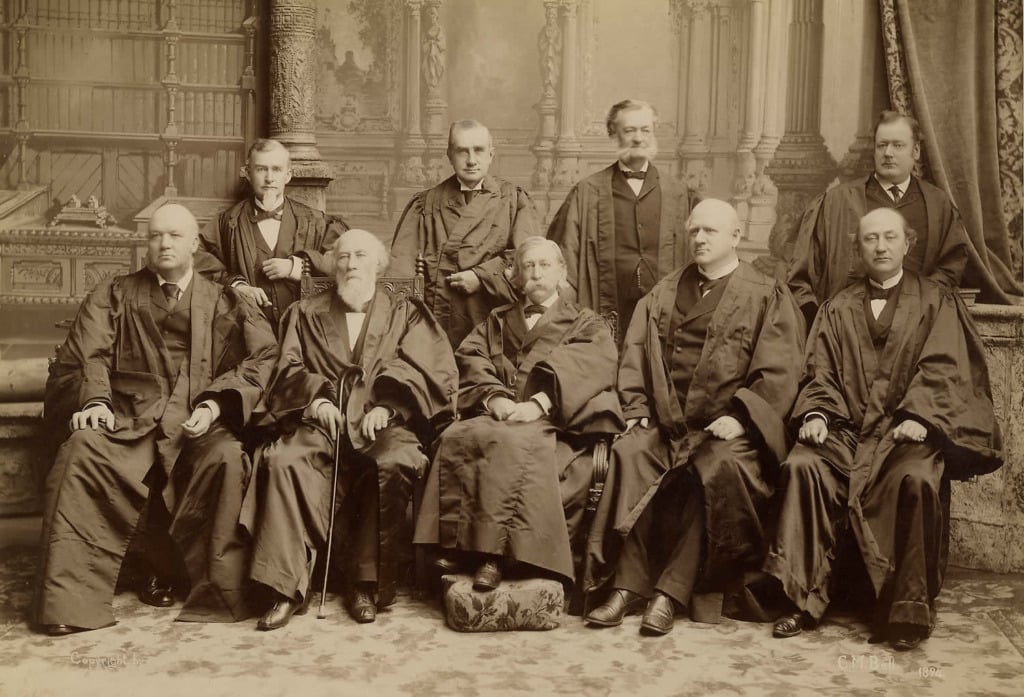Utah: A Virtual Gretna Green?
In Jane Austen’s novel, Pride and Prejudice, Lydia Bennet plans to elope to the village of Gretna Green, Scotland with Mr. Wickham. As she explains in a letter: You will laugh when you know where I am gone, and I cannot help laughing myself at your surprise tomorrow morning, as soon as I am missed….
Continue ReadingFederal Circuit Revives Afghanistan Lease Dispute
In a recent decision, Lessors of Abchakan Village v. Secretary of Defense, the Federal Circuit reversed the Armed Services Board of Contract Appeals (the “Board”) and revived a claim by Afghan villagers for $28 million in unpaid rent on a lease for a U.S. military base. Whether the villagers or the Government of Afghanistan owned…
Continue ReadingThrowback Thursday: Hilton v. Guyot
One hundred and thirty years ago this week, on June 3, 1895, the Supreme Court decided Hilton v. Guyot. Hilton is the seminal decision on recognizing and enforcing foreign judgments in U.S. courts. Although the federal common law rule that Hilton announced has been superseded by state law, Hilton continues to influence state rules in…
Continue ReadingMalta Refuses to Enforce $740 Million U.S. Judgment
On February 13, 2025, a Maltese court refused to enforce a $740 million default judgment issued by the 15th Judicial Circuit Court of Florida (Palm Beach County) in a defamation suit brought by Mehmet Tatlici (“Mehmet”) against his half-brother, Ugur Tatlici (“Ugur”). The Florida court’s award—issued on January 8, 2020, in a defamation suit filed…
Continue ReadingFederal Court Issues Worldwide Anti-Enforcement Injunction
Last month, Judge Edward Davila (Northern District of California) granted a motion by Google for a rare type of equitable relief: a worldwide anti-enforcement injunction. In Google v. Nao Tsargrad Media, a Russian media company obtained a judgment against Google in Russia and then began proceedings to enforce it in nine different countries. Arguing that…
Continue ReadingEnforcing Foreign Judgments in Non-Uniform Act States
The recognition and enforcement of foreign judgments in the United States are generally governed by state law. Most states have adopted one of two uniform acts to address this. Twenty-nine states and the District of Columbia have adopted the 2005 Uniform Foreign-Country Money Judgments Recognition Act. Nine additional states still rely on its predecessor, the…
Continue ReadingSystemic Due Process and the Hague Judgments Convention
The State Department is exploring ratification of the Hague Judgments Convention (HJC) and Convention on Choice of Court Agreements (COCA). It has announced a meeting of the Advisory Committee on Private International Law for October 24-25 to discuss these conventions (as well as the Singapore Convention on mediation) and how they might be implemented. As…
Continue ReadingReciprocity and the Hague Judgments Convention
In a prior post, I reported on recent developments that offer a basis for (cautious) optimism that the United States may soon take the necessary steps to ratify the Hague Judgments Convention (HJC). In this post, I explore how the issue of reciprocity might affect the ratification process. Reciprocity Reciprocity refers to the mutual recognition…
Continue ReadingHow (Not) to Decide Whether a Foreign Judgment Is Preclusive
Foreign judgments are generally entitled to recognition in the United States. Beneath that simple statement, however, lie many complexities. When lawyers and judges do not understand those complexities, they are likely to go astray. That seems to be what happened in Wash v. Finch, a recent federal decision in the District of New Jersey. This…
Continue Reading






